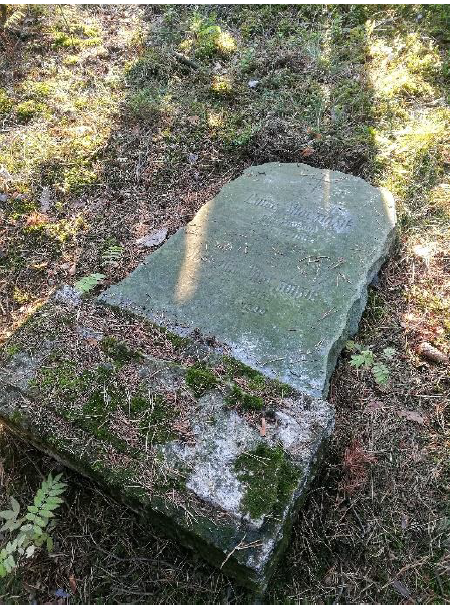Wilhelm and Luise Marzinzik were probably the wealthiest farmers in Hinter-Lippa.[1] Their farm was the largest in the district and they were the only ones there who owned an insthaus.[2] A Marzinzik family existed in Lippa since at least 1722.[3] In 1903 Wilhelm and Luise Marzinzik gave parts of their land to the community of Hinter-Lippa for the construction of a village road. For the negotiations about this an interpreter had to be called in at the district court Johannisburg, because Luise Marzinzik spoke only Masurian respectively Polish.[4] As wealthy farmers the Marzinziks probably enjoyed a high reputation in Lippa. This is supported by the fact that in 1934 Wilhelm Marzinzik was appointed as guardian for Willy Trojan, who was still a minor and whose father had died. As guardian, Wilhelm Marzinzik had the task of representing Willy Trojan in the inheritance dispute, acting in the best interests of the young man, who came of age that same year.[5]
Nothing more is known about other family members, such as children. There are only two references to other family members. On February 12, 1943, a Gottlieb Marzinzik from Oppendorf in Stettin was executed by the Nazis for, among other things, evading food stamps. Before his death, he headed an economic and nutrition office.[6] Since no information has survived other than his hometown and date of birth,[7] it is not clear what relationship Gottlieb Marzinzik had to Wilhelm and Luise Marzinzik. The second clue is a missing person report from Das Ostpreussenblatt from 1963: There an Ida Marzinzik from Oppendorf/Lippa was wanted.[8] How and if Ida was related to Luise and Wilhelm Marzinzik and who placed the search ad, however, must also remain unsettled. No member of the Marzinzik family applied for indemnity (Lastenausgleich) after the war or was mentioned in any of the applications, so that the traces of the family disappear with the death of Wilhelm Marzinzik in 1939.
[1] Krzysztof A. Worobiec: Zagubione wioski Puszczy Piskiej, Volume 4, Vorder- und Hinter Lippa, in: Gazeta Piska, 28 March – 3 April 2014, p. 14.
[2] Cf. Gerhard Wydra: Die 166 Dörfer des ostpreußischen Kreises Johannisburg. Stand: Vor der Flucht und Vertreibung. Volume I, Ortspläne, Hamm an der Sieg 1997, p. 129 and Gerhard Wydra: Die 166 Dörfer des ostpreußischen Kreises Johannisburg. Stand: Vor der Flucht und Vertreibung. Volume II, Ortskurzchroniken sowie die Namenslisten nach dem letzten Stand, Hamm an der Sieg 1997, p. 122. Instleute were people who earned their money as day laborers on someone else’s farm. Cf. Deutsches Rechtswörterbuch Online, entry: Instmann, Instleute: <https://drw-www.adw.uni-heidelberg.de/drw-cgi/zeige?index=lemmata&term=Instmann> (last accessed 07/04/2021).
[3] Folget Einnahm Geld […], Geheimes Staatsarchiv Preußischer Kulturbesitz (GStAPK), XX. HA, Ostpr. Fol. Nr. 4698, sheet 111.
[4] Grundakten des Amtsgerichts Johannisburg, Archiwum Państwowe w Olsztynie (APO) 295/3810, sheet 39 – 41, sheet 45f.
[5] APO 295/3799, sheet 63.
[6] Stettin, Meldung, in: Die Grenzzeitung Nr. 48, 18.02.1943, <https://bibliotekacyfrowa.eu/Con-tent/8309/13063-0001.pdf> (last accessed 03.06.2021), no page number (page 4 of the document).
[7] He was born on 29 May 1890, ibid.
[8] Johannisburg, Gesuchte Personen, in: Das Ostpreußenblatt, year´s issues 14, nr. 15, 13.04.1963, <https://ar-chiv.preussische-allgemeine.de/1963/1963_04_13_15.pdf> (last accessed on 15.07.2021), p. 12.
